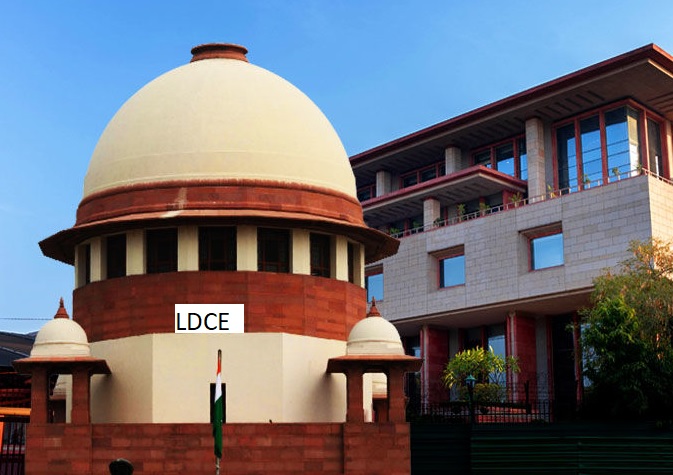


The recent ruling by the Supreme Court of India has brought clarity to the distinction between normal promotions and promotions through Limited Department Competitive Exams (LDCE). In this case, the court emphasized that LDCE, being a competitive selection process, differs significantly from regular promotions. It provides an accelerated avenue for promotions based on merit, and the criteria are specific to the competitive examination rather than the standard promotion process.
The court observed that a clear distinction must be made between normal promotions and promotions through LDCE. The latter is a unique opportunity for individuals to advance in their careers without waiting for the conventional promotion trajectory. LDCE involves a competitive examination that selects candidates from a limited pool, and as such, it cannot be equated with the regular promotion process. The court rejected the argument that the criteria for regular promotions, including medical fitness, should apply to promotions through LDCE.
The case before the Supreme Court involved an appeal against a Delhi High Court judgment. The appellant sought to challenge the medical examination result that deemed him medically unfit for the position of Sub Inspector. The appellant, a Constable (GD) with the Border Security Force (BSF), aimed for promotion to the post of Sub-Inspector (GD) through LDCE 2018-19. The eligibility conditions, including a SHAPE-I medical category qualification, were explicitly outlined in the advertisement.
The LDCE comprised five stages, with the final stage requiring candidates to undergo a detailed medical examination to ensure they were medically fit for the Sub-Inspector (GD) position. The appellant underwent the medical examination on December 23, 2019, where he was found medically unfit. A subsequent review by a board of three doctors on February 27, 2020, affirmed the initial findings.
The appellant contested the medical report in the Delhi High Court, which dismissed his petition. Dissatisfied with the outcome, the appellant approached the Supreme Court for redress.
The Supreme Court bench, consisting of Justices Abhay S. Oka and Justice Pankaj Mithal, noted that the appellant had never been declared medically fit for the Sub-Inspector (GD) post throughout the LDCE process. While the appellant met the SHAPE-I category during routine annual medical check-ups as a constable, this was merely a prerequisite for applying to the Sub-Inspector (GD) position through LDCE. Importantly, it was not considered a part of the examination process for selection.
The court emphasized that the appellant failed to qualify for stage V, which involved a detailed medical examination and was a crucial component of the LDCE scheme. Despite meeting the SHAPE-I category, the appellant did not fulfill the requirements for the final stage of the competitive examination, leading to his disqualification from the promotion process.
In summary, the Supreme Court's ruling underscores the unique nature of promotions through LDCE, emphasizing that such promotions should not be equated with regular promotions. The decision clarifies that criteria specific to LDCE, including medical fitness, are distinct from those applicable to standard promotions.
TAGS: Normal promotions Competitive selection process Accelerated promotions Merit-based promotions Criteria for promotions Delhi High Court.